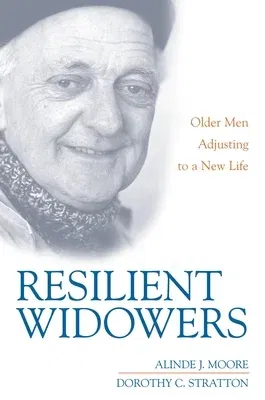Based on an intensive qualitative study of a diverse group of 51 older
widowers, this unique book sets widowhood within the context of life
experience and identifies characteristics and patterns of behavior that
contribute to widowersAE success, or lack of it, in adjusting
satisfactorily to their circumstances. The authors shed light on
widowers' specific needs and on the services needed to help widowers
develop greater self-reliance.
Among the topics discussed are models of resilience, marriage and
illness of the spouse, caregiving and communication, death of the wife,
grief and adjustment, living alone and remarriage, life values carried
forward, adult children and other social support, and cohorts and the
future. The authors conclude with a consideration of trends that may
influence the next generation's experience of widowhood.
This excellent volume offers expert guidance on the needs and care of
the nearly invisible population of older widowers.


